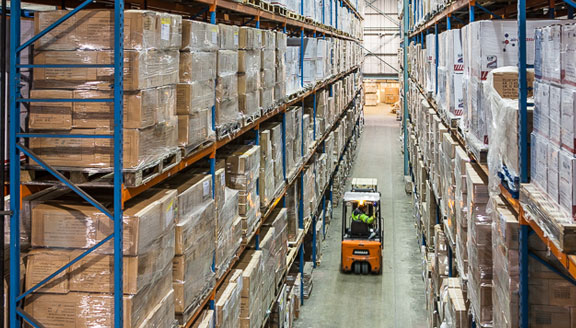
There are three main types of food grade warehousing companies – dry food storage companies, frozen food grade facilities, and refrigerated facilities. Frozen storage usually operates its environment within the temperature range of 0 degrees Fahrenheit and below. Refrigerated, or climate control facilities, can keep food at a comfortable temperature range of 34-39 degrees Fahrenheit. Finally, dry food grade storage facilities usually operate within the 50-70 degree Fahrenheit range. Between these three temperature ranges, companies can handle the different types of food needs for companies. Some warehousing companies offer all three types of temperature ranges, whereas some only specialize in one or two of the options – so you’ll have to check with the specific provider in order to determine if they can meet your needs.
Important Factors to Consider When Selecting Food Grade Warehouse Company
Once you find a provider that meets your needs with regard to the temperature requirements of your food products, you’ll want to investigate the potential provider’s overall capabilities, certifications, standards and procedures, and track record of success with managing food grade commodities for others. In order to feel comfortable with the vendor, it makes great sense to tour the facility in order to personally gauge the strict adherence to regulations. Some of the items below are most important to investigate:
- Is the facility clean and free of bacteria, fungus or health hazards: Obviously, a food grade facility should be a very clean environment. In order to keep food in the required condition for consumption, it should be free of anything that would adversely impact its condition, such as bacteria or fungus. Make sure to keep a sharp eye open as you tour the facility.
- Condition of the building and regulations: It’s important to check the overall health of the warehouse, both inside and out. In particular, check to make sure that it is well maintained (no cracks and holes in walls and windows) and that the doors are sealed, and check the overall temperature and humidity. This will keep pests out. Furthermore, the warehouse should have a pest control plan, detailing the precautions that the warehouse staff take in order to eliminate this risk. And definitely make sure that the outside of the building is well maintained and kept, as this can have an impact on the overall health of the facility.
- Master sanitation schedule and overall SOP’s: Does the warehouse have a master sanitation schedule? One of the best signs of a high quality food grade warehousing company is the presence of detailed procedures, and a sanitation schedule should be at the top of the list. This schedule provides the details behind what measures and steps the personnel take in order to maintain a clean facility. Furthermore, every process and procedure should be logged in the company’s SOPs (standard operating procedures). These are detailed steps to ensure the quality operation of the warehouse and its staff.
- Personal hygiene and training: As an extension of the sanitation schedule, the warehouse company should maintain a high degree of personal hygiene, including a detailed training schedule to make sure that the facility is adequately equipped with sinks, etc., and that staff are well trained in terms of maintaining their personal hygiene throughout their shifts. As a part of this function, make sure that the company has controls over any hazardous materials, such as cleaning supplies, etc.
- Lot tracing and FIFO: Food products must be strictly controlled with regard to its age, and thus warehouses must have the capability of tracking product based upon lots and utilizing the FIFO (first in, first out methodology). In particular, check out the company’s warehouse management system to verify their capabilities.
- Registered with the FDA: This one is a bit of a given, but be sure to check that the warehouse is in fact registered with the FDA. Occasionally, some warehousing providers aren’t aware of regulations for common, dry food products and lack the proper registration.
Updated by Omaha SEO Company
